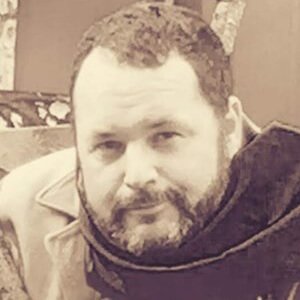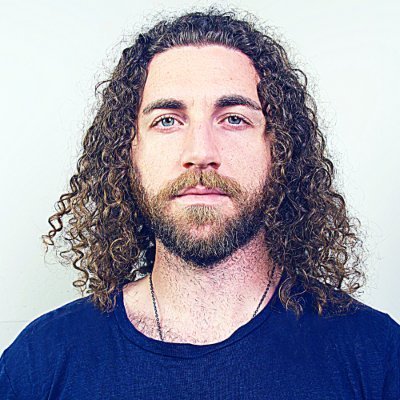This book is inspired by Ludwig von Bertalanffy’s scientific foundations of systems theory, rooted in life metaphors and coupled with technical interpretations, to approach the mystery of subjectivity in an open and exploratory form.
SUMMARY
This book uses Ludwig von Bertalanffy’s scientific foundations of systems theory, rooted in life metaphors and coupled with technical interpretations, to approach the mystery of subjectivity in an open and exploratory form. This mystery is framed through a mixture of four giants of the continental philosophical tradition: Martin Heidegger, Sigmund Freud, Friedrich Nietzsche, and Georg Hegel. Throughout the book system and subject are thought in a feedback loop with each other, from the origin of modern science to the puzzles and contradictions of contemporary science. We first ground the book in the interiority of Dasein (our being-in-the-world), second shift towards thinking history from a meta-psychological point of view (historicity of the analytic psyche), third approach politics as a species level self-overcoming (horizon of organisational forms), and finally, think both the absolute concept and concept of the absolute (from physics to evolution to philosophy itself). The aim of this work is not to provide final answers to all fundamental questions, but rather to play on the frontier in the total absence of final answers. The ideal result of this play is partially to analyse and hystericise science, but also to open the conditions of possibility for new university-level and masterful discourse including subjectivity into science itself.
SECTIONS
-
On Scientific Reflection
-
1.0 Philosophy of Interiority
1.1 Interior Experience
1.2 Performative Tension
1.3 World Creation
1.4 Symbolic Freedom
-
2.0 Philosophy of Problems
2.1 Singular History
2.2 Multiplicity Models
2.3 Mental Paradox
2.4 Existential Mystery
-
3.0 Philosophy of Power
3.1 Efficient Optimisation
3.2 Cybernetic Knowing
3.3 Hierarchical Structure
3.4 Concrete Universality
-
4.0 Philosophy of System
4.1 Systemic Concept
4.2 Fundamental Formalism
4.3 Reflective System
4.4 Dialectical Absolute
ENDORSEMENTS.
“We need much better tools for placing our analytical and soulful intelligences into deeper constructive dialogue. This is an urgent planetary problem upon which the wellbeing of our strange new civilization may depend. Fortunately, this text is precisely that kind of tool. Yet such attempts are risky. We certainly admire people who try to produce novel syntheses across disparate domains of existential significance but the results are often lamentably vague or else too idiosyncratic to provide general applicability. Not so in this case! Cadell Last’s peculiarity is that he can evade the usual lopsidedness in these affairs. Thus he can deliver a plausibly useful hybrid of systems theory and continental philosophy, cognitive theory and spirituality, information theory and ethics.
It is as though we are watching someone take the tension of the Subject’s unknown relationship to itself in a liberating ontology from which it can never escape -- and build that into something like thermodynamics. A curious and provocative move. Daring in a reasonable way. The systems theory of subjectivity revives the utility of the Platonic and esoteric without positing anything of which Hegel, Nietzsche or the natural sciences would significantly disapprove. Perhaps we might call this a work of radical evolutionary nondualism coupled with an ethics of synergy that is disarmingly framed as a leading-edge technosocial treatise.”
Layman Pascal, Feral Philosopher, host of The Integral Stage podcast
“May you live in interesting times’ is an apocryphal English translation of a traditional Chinese curse. Interesting times are times of turmoil, strife, uncertainty, change and revelation - in other words Apocalyptic times. In the 21st century, the roughly 300.000 year old human is thrown into a hyperconnected, digital world featuring the rise of nanotechnology, synthetic biology, AI, quantum computing and more. In order to survive our Apocalypse, we need thinkers that span anthropology, philosophy and technology. Cadell Last's deep and thorough engagement with thinkers such as Hegel, Nietzsche, Freud and von Bertalanffy provides creative, provocative and interdisciplinary thinking for our times. Let's buckle up and take that ride.”
Dr. Thomas Hamelryck, Associate Professor in bioinformatics and machine learning, University of Copenhagen, Denmark
“It is difficult to think systems, a radical challenge to consider subjects, and Dr. Cadell Last has decided to think both. Systems shape subjects though, as subjects change systems, and that means the topic is active and changing. To make matters more complex, Dr. Last considers the possibility that the very act of considering “systems and subjects” actively forms both, as thinking about this meta-thought shapes the meta-thought, a notion which shapes the meta-meta-thought—like a fractal open to infinite recursion. Wittgenstein famously claimed that the world is everything that is the case, but are we part of that world? If so, everything changes.
Is it possible, perhaps, that moderns imagine systems as independent of subjects so that we don’t have to consider our radical freedom? Is it possible that we have separated in science the subject from our thinking of objects due to a subconscious desire to “solve the problem of the subject” by effacing it? Are we so sure that each of us isn’t the embodiment of a pure thought of an unknown where there is only pure possibility? What kind of communities might form between people who think such? Elaborating and expanding on the brilliant Ludwig von Bertalanffy, Dr. Last walks readers into a universe which might house an Absolute concept capable of creating radically different constraints than what we are accustomed to imagining, all while warning us that failure to consider this possibility might be precisely why the future ends up a utopia where we are nowhere to be found. The stakes are high, and yet currently scientists and philosophy leave the thinking of these possibilities ignored, abandoning them to new age spiritual obfuscation. No wonder we feel lost.
Moderns tend to think of the brain like a computer which uses “1s and 0s,” but what if we tried to understand ourselves according to quantum logic, as paradoxically and simultaneously thinking in 1/0s—how might we think our nature then? This consideration has implications on everything from quantum gravity to Freudian psychoanalysis to Hegelian reconciliation, and Dr. Last explores all of these creative perspectives, ending the book on a note of hope. Thanks to technological complexification, we are gaining the tools needed to explore reality deeply, but Dr. Last encourages us to so adventure always aware that we create ourselves and what we explore in the process. Thinking that is our “hard problem,” but thanks to Dr. Last the problem is much easier for us to tarry with and learn to love. Life is indeterminate, and that means we can prove determined to live.”
Daniel Garner of O.G. Rose, Author of The Conflict of Mind and Thoughts, Creator of the DLG Pattern Method for Piano.
“I see here a brilliant book. I am attracted to its boldness and breadth of clarity, and find in it a depth of metabolisation that speaks to an intensity of will, and a hope without ignorance of tragedy or historical-systemic conditionality.
It reads to me like a friend speaking well on something I care about—something of a pattern I see too. It’s a pattern shared from many angles, illuminated by living dyads of historical tension, and a through-line of argument that remains in touch even as vast domains of canonical thought forms are brought into focus and contextualised in ways that are vital and fresh. As I read I find myself affirming, learning, and crucially: returning in address to wondering tensions and absences that stir active thought toward further participation in mystery.
As a philosopher who navigates similar wave-sets of contemplation as the author, reading this work sometimes feels as if we’ve each lived fragments of the same memory. But given unique knowings of the lifeworld—steeped in difference alongside a breadth and depth of historical as well as just so phenomenal sameness, even that ‘shared same’ memory would be independently perceived and interpreted by each of us. The living prisms (or re-animate prisons) of our perceptions coloured and pulled, in tension this way and that, by logics and narratives and significances as dispositions-to-awareness which cannot but combine to know the knowing just some bit uniquely. A song played once but heard differently, begetting different repetitions in response. Or if you prefer: a note tuned to a pitch that never quite the same beckons for two.
For this is a book about living and dying, struggling and overcoming, departing and returning, from the finite-absolute through the infinite-conditioned. Or perhaps, from the infinite relativity through finite point of no return as always-already departed: the nowhere of now and here, grappling with the real of systems which subject the subject. And that matters because this book — despite giving so much to the reader, sharing with so much boldness of clarity — does not do all the work for you.
For of course how could it? It’s a book meant to be well met. And it shares liberally nutrient-rich food, in friendship. So I recommend you meet it with openness to such: as a two way process. And thereby value the worth of your own transformative undergoing. Lest, that is, this book becomes mere system for your subject. The reality is the work is more, if its text be known and fulfilled as invitation to real address. For when a friend speaks well on something you care about, it’s a good idea to accept its gift like a bridge to the future. One that carries you like a current: opening to, and inviting thereby, fresh discernment on the way beyond..”
Tim Adalin, Philosopher and Founder of Voicecraft .




